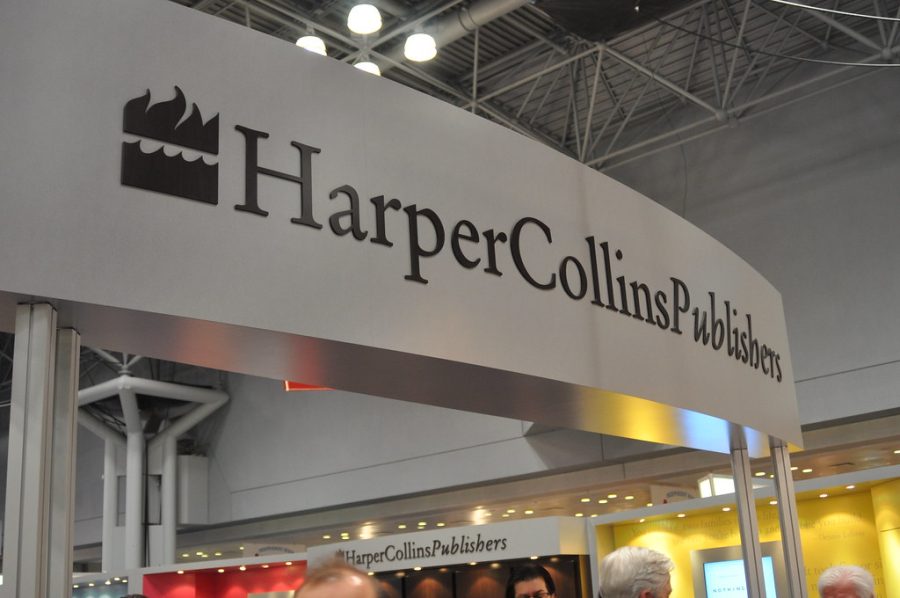HarperCollins union strikes for better pay, more diversity in publishing industry
HarperCollins has faced backlash from multiple authors regarding its silence about employees’ demands.
Since last fall, multiple sources have reported on an ongoing fight for higher wages and diversity by union members at HarperCollins, one of the world’s largest publishers. According to the New York Times, 250 members of the company’s union went on strike on Nov. 10, 2022. Union members, including employees who work in publicity, sales and marketing, are still on strike since HarperCollins and the union have not reached an agreement on a new contract.
On Nov. 10, the New York Times reported that the unionized employees have decided to stop working until the two sides reach an agreement. According to Publishers Weekly, contract negotiations between the union and HarperCollins began in December 2021, and union members have been working since April 2022 without a contract. The New York Times also reported that the union has proposed that HarperCollins raise the minimum starting salary from $45,000 to $50,000 for unionized employees.
Laura Harshberger, union chair and senior production editor at HarperCollins, told the New York Times she believes the strike is about much more than employees’ paychecks, saying: “This fight has really been focused on trying to make publishing a more diverse and equitable place that reflects our values and the books that we make.”
Guilford College sophomore Tamryn Herring agrees with the HarperCollins employees’ demands. “The requests they made are absolutely justified,” said Herring, who uses she/they pronouns. “The need for diversity commitments, union protections, and wage adjustments is the bare minimum of what they deserve. I stand by every single one of the union’s asks and hope they receive what they are owed soon.”
The only response from the company has been from Brian Murray, the CEO of HarperCollins, who wrote an open letter to authors and agents who are supporting the strike.
“…current compensation offerings are consistent with our peers in the publishing industry. During recent negotiations, we proposed a fair and reasonable pay structure, including increases to entry-level salaries,” Murray wrote in the letter. He went on to say that the union’s requests “are many and far-reaching” and that they “fail to account for the market dynamics of the publishing industry.”
Austin Rogers, a junior at Guilford, believes that the workers’ requests are valid: “I think it is perfectly reasonable for them to demand higher wages and better conditions.” Rogers pointed out that the publishing industry is based in New York City, an expensive place to live, and applauded the union’s request for diversity. “Diversity in publishing is important because having non-white voices at every level will lead to better representation.”
Many authors have voiced their support for the strike. R.F. Kuang, a bestselling author of fiction who has garnered praise for her book, “Babel,” co-hosted a rally at HarperCollins. Other authors have joined in supporting the union by spreading awareness through social media, including S.A. Chakraborty, who wrote the book “City of Brass.”
“The HarperCollins strike was a long time coming,” Herring said. “The bottom line is, authors, illustrators, editors and agents are uncompensated for their performance and deserve much better than what they’ve been given in the past. There is no reason why someone working full-time should be living paycheck to paycheck.”
Herring believes the employees are always doing their best to provide the world with more literature and gain no recognition. “At the bare minimum, they deserve a livable wage that reflects the hard work they put into the publishing industry. HarperCollins’s silence and refusal to come to the table for negotiations is a pitiful but accurate display of how little they value their employees and the work that they do.”
Cynthia Nearman, a professor of English at Guilford College, said that she supports the strike and that it has always been difficult to get into publishing. “I graduated from college in 1993 and there were people who wanted to go work in publishing. If they didn’t already have a lot of money or someone they could live with, there is no way to support yourself as a publishing intern or an entry-level copy editor.”
Nearman added that the criticism of publishing has been building in regard to its pay and its lack of diversity. “They are striking for good reasons,” she said.
“I feel like they are striking for everyone. We all should have access to more different kinds of voices and stories,” she added. “This criticism has been building, of its whiteness and its maleness.










